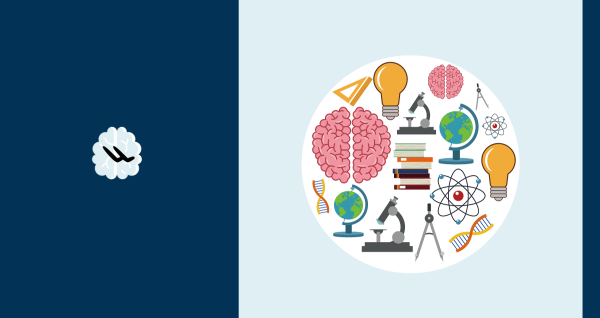
Artikel
22
november
The Science of Learning: Unlocking the Secrets of How We Acquire Knowledge
Learning is a fundamental aspect of human existence, shaping our understanding of the world and influencing our abilities to adapt and thrive. In recent years, the field of educational psychology and neuroscience has delved deep into the intricate processes that govern how we acquire knowledge. This exploration has uncovered fascinating insights into the science of learning, revealing the complex interplay of cognitive, neurological, and environmental factors that contribute to our ability to absorb and retain information.
1/ Understanding the Learning Process:
Learning is not a monolithic process but a dynamic interplay of various cognitive functions. The process involves attention, perception, memory, and problem-solving skills. Psychologists and neuroscientists have identified different learning styles, recognizing that individuals may have preferences for visual, auditory, kinesthetic, or reading/writing modalities.
2/ Neurobiological Basis of Learning:
Neuroscience has played a pivotal role in unraveling the mysteries of learning. The brain is a highly plastic organ, capable of reorganizing itself in response to new experiences. Neuroplasticity, the ability of the brain to form and reorganize synaptic connections, is a key mechanism underlying learning. As we engage with new information, neural pathways are strengthened, facilitating the encoding and retrieval of knowledge.
3/ Memory Formation and Retrieval:
Memory is a cornerstone of learning, and researchers have delineated the intricacies of how we form and retrieve memories. The process involves three main stages: encoding, storage, and retrieval. Encoding is the initial process of converting information into a form that can be stored in memory. The strength of the memory trace influences storage, and successful retrieval relies on the cues and context associated with the encoded information.
4/ Effective Learning Strategies:
Research in the science of learning has identified strategies that enhance the efficiency of the learning process. Active engagement, spaced repetition, and elaborative rehearsal are some techniques that have proven effective in promoting long-term retention. Moreover, the incorporation of real-world examples and practical applications helps bridge the gap between theoretical knowledge and its practical utility.
5/ The Role of Motivation and Emotion:
Motivation and emotion play a crucial role in learning. Intrinsically motivated individuals are more likely to approach learning with enthusiasm and persistence. Positive emotional experiences enhance memory consolidation, while stress and negative emotions can impede the learning process. Understanding the emotional and motivational dimensions of learning is vital for creating conducive learning environments.
6/ Implications for Education:
Insights from the science of learning have profound implications for education. Tailoring instructional methods to align with cognitive principles can optimize learning outcomes. Personalized learning approaches, adaptive technologies, and the integration of multimedia resources cater to diverse learning styles and preferences. Educators are increasingly incorporating these evidence-based strategies to create enriching and effective learning experiences.
The science of learning continues to unravel the intricacies of how knowledge is acquired and retained. From the neurobiological underpinnings to the practical applications in education, this interdisciplinary field provides a roadmap for optimizing the learning process. As our understanding deepens, the potential to enhance educational practices and cultivate a lifelong love for learning becomes ever more promising. In unlocking the secrets of how we acquire knowledge, we not only empower individuals to reach their intellectual potential but also contribute to the advancement of society as a whole.
What's your reaction ?
Follow us on Social Media
Some Categories
Recent posts

July 27, 2024
Nieuwe kabinetsvisie: samen sterker tegen cyberdreigingen

July 24, 2024
Navigating AI Implementation: Try these strategies to overcome resistance.

July 24, 2024
Sick Leave Policy Netherlands Guidance for HR and Entrepreneur.

July 24, 2024
CSRD Reporting: Mandatory Reporting on Corporate Sustainability.

July 24, 2024
Training Budget: Investing in Employee Development.

 Inloggen
Inloggen
 Registreren
Registreren






Comments (0)
No reviews found
Add Comment